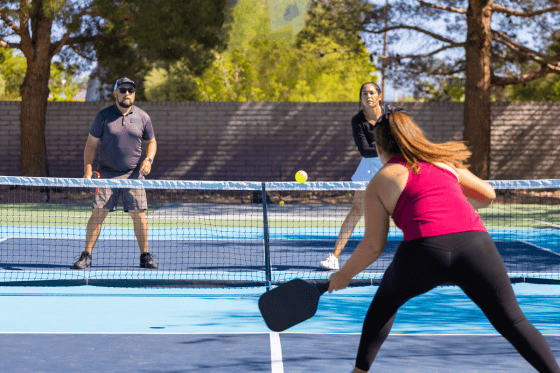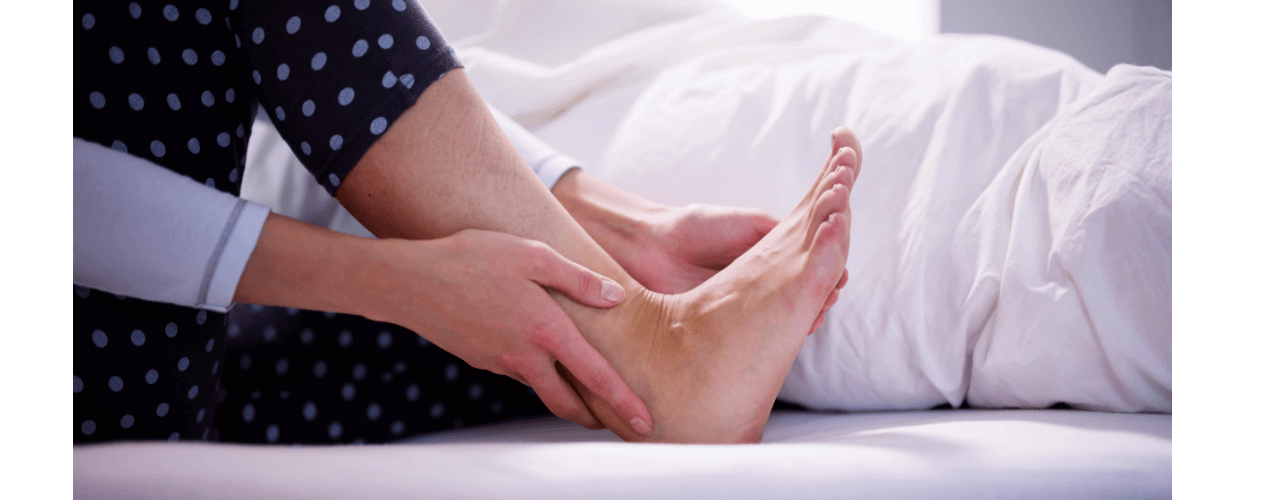Pickleball has won the hearts of millions, and it’s easy to see why. This blog delves into the rapid growth of the sport, its impressive health benefits, and the injury risks to be mindful of.
The Boom of Pickleball
What’s behind pickleball’s sudden boom? For one, it’s incredibly accessible. The rules are simple to grasp, and the equipment—just a paddle, a plastic ball, and sneakers—is budget-friendly. The smaller court size is beginner-friendly and ideal for older players with limited mobility. On top of that, it’s a highly social game, perfect for doubles with friends or joining local leagues to connect with new people.
Pickleball’s popularity skyrocketed during the pandemic when people were looking for safe ways to stay active outdoors. Today, it’s one of the fastest-growing sports in the U.S., with dedicated pickleball courts popping up in parks, community centers, and retirement communities across the country.
But with this surge in popularity comes a growing number of injuries. It’s essential to understand how to enjoy this fun sport safely to avoid downtime from aches and pains.
Health Benefits of Pickleball
Pickleball isn’t just fun—it also delivers a variety of health benefits. It’s an effective way to stay active, build strength, and boost mental well-being.
Heart Health and Cardiovascular Fitness
Pickleball may look like a laid-back game, but don’t be fooled—it can give you a solid cardio workout. The quick movements, side-to-side shuffles, and sprints to reach the ball help increase your heart rate, improve blood circulation, and enhance overall cardiovascular health.
Studies have shown that even moderate pickleball play can help lower blood pressure, improve cholesterol levels, and reduce the risk of heart disease. For those looking to get their daily dose of exercise in a way that’s enjoyable and social, pickleball is a fantastic option.
Building Strength and Enhancing Balance
Because of its fast-paced nature, pickleball requires players to react quickly and move efficiently. This constant movement helps strengthen key muscle groups, including the legs, core, and upper body.
The quick direction changes also improve balance and coordination. For older adults, maintaining balance is critical in preventing falls. The sport’s low-impact nature makes it an excellent way to work on these skills without putting excessive strain on the joints.
Boosting Mental Health and Well-Being
Beyond the physical perks, pickleball also provides significant mental health benefits. The social aspect of the game helps combat feelings of loneliness and isolation, especially in older adults.
Playing pickleball requires focus, strategy, and quick decision-making, which keeps the brain engaged. Many players report feeling happier and more energized after a session on the court, thanks to the combination of physical activity and social interaction.
Common Injuries in Pickleball
While pickleball offers numerous health benefits, it’s not without its risks. As the sport grows in popularity, we’ve seen a rise in injuries—some of which could easily be prevented with the right precautions.
Acute Injuries
Acute injuries happen suddenly and often result from falls, trips, or quick movements on the court. Common acute injuries in pickleball include:
- Ankle sprains: Sudden changes in direction can put strain on the ankles, leading to sprains.
- Wrist injuries: Falls can cause players to land on their hands, resulting in wrist sprains or fractures.
- Knee injuries: Quick pivots and lunges can put stress on the knees, causing strains or tears in the ligaments.
- Shoulder strains: Overreaching or using improper technique can lead to shoulder pain and strain.
Overuse Injuries
Overuse injuries develop gradually over time due to repetitive motions. These types of injuries are common among players who don’t allow enough time for recovery between games.
- Tennis elbow: Despite the name, this condition is common in pickleball players due to repetitive gripping of the paddle.
- Knee pain: Continuous bending and quick movements can lead to knee discomfort or flare-ups of existing conditions like arthritis.
- Plantar fasciitis: The repeated impact on the feet during play can cause inflammation of the plantar fascia, leading to heel pain.
Prevention Tips
To enjoy pickleball without the worry of injury, it’s important to take preventative measures. Here are some tips to keep you playing pain-free:
- Warm up properly: Spend a few minutes stretching your muscles and warming up your joints before stepping on the court.
- Wear supportive footwear: Choose shoes with good arch support and cushioning to protect your feet and reduce the risk of injury.
- Focus on technique: Proper form can help prevent unnecessary strain on your muscles and joints. Consider taking a lesson to learn the correct way to move and hit the ball.
- Take breaks: Avoid overplaying and give your body time to recover between games.
- Strengthen your muscles: Incorporate exercises that target your core, legs, and shoulders to build the strength needed for pickleball.
- Listen to your body: If you feel pain or discomfort, don’t push through it. Take a break and seek advice from a healthcare professional if necessary.
How Physical Therapy Can Help
If you’ve been sidelined by a pickleball injury or are experiencing discomfort that’s keeping you from the court, physical therapy can help.
At Houghton Physical Therapy, we work with athletes of all ages and skill levels to help them recover from injuries and improve their performance. Our team can help identify the root cause of your pain and develop a personalized treatment plan to get you back on the court safely.
We offer a range of therapies to address common pickleball injuries, including:
- Manual Therapy: Hands-on techniques to reduce muscle tension and improve mobility.
- Soft Tissue Mobilization: Targeting tight muscles and fascia to improve flexibility and reduce pain.
- Strength and Conditioning Programs: Exercises designed to enhance your strength, balance, and endurance.
- Injury Prevention Education: Learn how to avoid injuries with proper warm-up techniques and game strategies.
Conclusion
Pickleball is more than just a trendy sport—it’s a fun, social way to improve your physical and mental well-being. But as with any physical activity, it’s important to be mindful of injury risks and take steps to protect yourself.
If knee pain, shoulder discomfort, or any other aches are holding you back from fully enjoying your pickleball games, our team at Houghton Physical Therapy is here to help. Arrange your FREE consultation today to discuss your concerns and discover how we can help you stay active and pain-free on the court.
Ready to improve your game and keep injuries at bay? Call us at 508-223-2300 or click here to get started and book your free consultation.
Don’t let pain keep you off the court—let us help you stay in the game!
More Free Physical Therapy Information To Help You
Download our FREE Physical Therapy Report– 51 Most FAQs About Physical Therapy – Houghton Physical Therapy
Read Our Blog – Unlocking Your Full Potential: How PT Helps You Live an Active Life – Houghton Physical Therapy
Want videos on demand? Check Out Our YouTube Channel (Remember to hit subscribe so you don’t miss out on our new videos!)
On social media? Follow us on Facebook, Instagram, or LinkedIn
Tags: active, PT, physical therapy, pickleball, pickleball injuries



